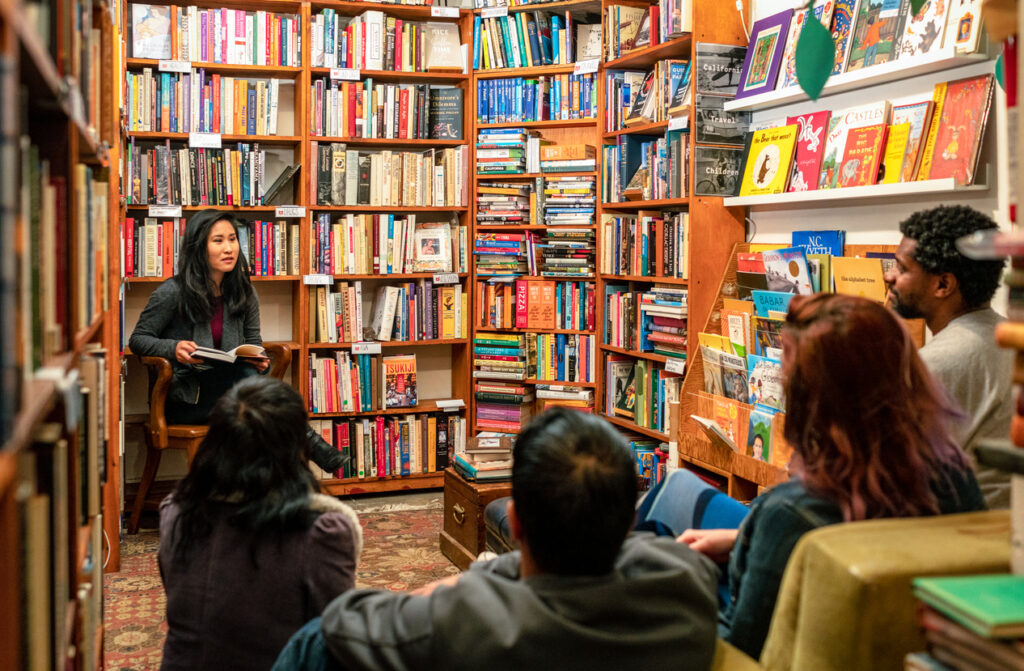Creative writing programs provide aspiring writers with unique opportunities to hone their craft and develop their creative voices. These programs often consist of a blend of literature courses and writing workshops, each playing a pivotal role in shaping the writer’s journey.
Literature courses guide writers through various traditions, genres, and points of view. These courses introduce students to numerous narratives, preparing them to tackle the challenges of narration, character, and theme development. Writing workshops, on the other hand, provide a dynamic environment for hands-on experimentation and constructive feedback.
Finding the right balance between reading and writing is essential for fostering a well-rounded understanding of storytelling and effectively translating ideas onto the page.
The Importance of Literature Courses
Literature courses lay the foundation for a writer’s growth by exposing them to diverse styles, themes, and historical contexts. By studying literature across different genres and eras, aspiring writers gain a deeper understanding of storytelling techniques, narrative structures, and the evolution of language. This exposure equips them with the tools to craft more nuanced and compelling stories.
Reading various literary works also nurtures creativity, offering a treasure trove of inspiration for new ideas and fresh perspectives. The study of literature fosters a critical eye, teaching writers to analyze and dissect texts to uncover underlying meanings and thematic elements. This capacity for in-depth analysis allows authors to add new dimensions of insight to their own works.
The Value of Writing Workshops
Writing workshops form the backbone of creative writing programs, providing a hands-on, interactive platform for writers to refine their skills. These workshops allow participants to experiment with different writing styles and receive constructive feedback from peers and instructors.
The workshop environment encourages writers to:
- Step outside their comfort zones
- Explore new genres
- Test their creative boundaries
Peer review sessions in writing workshops expose writers to diverse perspectives and opinions, fostering a sense of community and collective growth. Engaging in thoughtful discussions about each other’s work hones the ability to give and receive constructive criticism, an invaluable skill for any writer seeking to improve.
As writers share their work and witness its impact on others, they gain insights into the strengths and weaknesses of their writing. This enables them to make informed revisions and refinements.
Interplay between Literature and Writing
The relationship between literature courses and writing workshops is symbiotic. Studying literature enhances writing skills by exposing writers to a diverse range of voices, styles, and genres. Exploring classic and contemporary works fosters an appreciation for language, rhythm, and narrative structures, which can significantly elevate the quality of one’s writing.
Writing workshops, on the other hand, benefit from the insights gained through literature studies. Writers engaged with various literary works are better equipped to experiment with different narrative techniques and approaches. Drawing inspiration from other authors and genres, writers can infuse their work with unique and innovative elements that captivate readers.
Expert Opinions and Testimonials

Renowned authors and educators have long emphasized the pivotal role that a balanced creative writing program plays in nurturing literary talent.
Stephen King, a master of horror and suspense, said it best: “If you want to be a writer, you must do two things above all others: read and write a lot.” King’s words echo the fundamental truth that exposure to a wide array of literature enriches a writer’s palette while consistent writing sharpens the tools of the craft.
Ray Bradbury, one of the most celebrated 20th-century American writers, offered a similarly profound insight into the writing process: “Just write every day of your life. Read intensely. Then see what happens.” Bradbury’s wisdom emphasizes the intrinsic connection between reading and writing. The two activities mutually reinforce each other, leading to growth, innovation, and a deeper understanding of the craft.
Strategies for Achieving Balance
Balancing the scales between literature courses and writing workshops requires a strategic approach from individuals and institutions. Here are some practical strategies to strike the right equilibrium:
- Curriculum Design: Creative writing programs should structure their curriculum to include a blend of literature courses that expose students to various genres, cultures, and historical periods. These courses should be carefully interwoven with writing workshops, encouraging experimentation and applying theoretical concepts.
- Guided Reading: Instructors can assign targeted readings that align with the themes or techniques explored in writing workshops. This approach allows students to engage with literature in a way that directly informs their creative endeavors.
- Collaborative Projects: Integrating collaborative projects that require students to analyze and respond to literary works collectively fosters a deeper understanding of literature and writing. This approach encourages students to bridge the gap between theory and practice.
- Incorporate Critical Analysis: Writing workshops can incorporate sessions where participants analyze and discuss excerpts from literary works, identifying elements like character development, pacing, and narrative structure. This practice enhances the ability to apply literary techniques in one’s own writing.
- Regular Reflection: Encourage students to reflect on how their reading experiences influence their writing and vice versa. Integrating reflection into the learning process helps students internalize the connection between the two aspects.
By implementing these strategies, creative writing programs can effectively create an environment where the exploration of literature and the practice of writing coexist and thrive in a harmonious partnership. This holistic approach ensures that aspiring writers develop their craft and gain a deep appreciation for storytelling, enriching their creative journeys in profound ways.
Case Studies
Several creative writing programs have successfully achieved a harmonious balance between literature courses and writing workshops, yielding exceptional results. The Creative Writing and English program at Southern New Hampshire University intertwines literature seminars with creative writing workshops, resulting in graduates who are adept storytellers and perceptive literary analysts.
The Bachelor of Science in English and Writing program at Liberty University also seamlessly weaves the study of narrative structures in literature with hands-on, collaborative writing projects, producing graduates equipped to craft compelling narratives across mediums.
Unleash the Power of Words with a Creative Writing Degree
Balancing the dynamic interplay between literature courses and writing workshops is the cornerstone of a thriving creative writing journey. This equilibrium nurtures writers who possess both the insightful analysis of a reader and the imaginative prowess of a wordsmith.
Research and explore creative writing programs that harmoniously blend reading and writing, and embark on a transformative path toward becoming a skilled and inspired writer. Unleash the power of words with a creative writing degree and craft your literary legacy!






